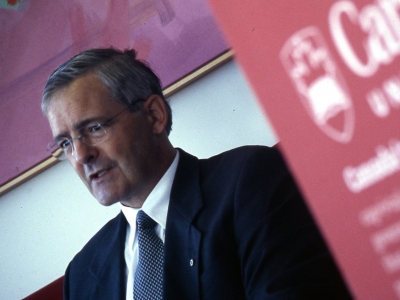Carleton University researchers will receive more than $9 million from the Natural Sciences and Engineering Research Council of Canada (NSERC) to support important and diverse research in fields including subatomic physics, permafrost thaw, and connected and autonomous vehicles.
“NSERC funding enables Carleton to extend its cutting-edge research and support important national and international partnerships,” said Rafik Goubran, vice-president (Research and International). “The Carleton-led research supported by this funding will strengthen our multi-disciplinary research collaborations and deliver important benefits to Canadians.”
Richard Yu, professor in the School of Information Technology, has received funding through the Industrial Stream CREATE program for Building Trust in Connected and Autonomous Vehicles (CAVs). This project will attract, retain and train Canada’s leaders in CAVs and address associated challenges. CAVs have the potential to enhance transportation efficiency, reduce accidents, improve safety and provide greater mobility and environmental benefits. Despite this potential, significant challenges remain before widespread deployment.
Stephan Gruber, professor in the Department of Geography and Environmental Studies, is the principal investigator of NSERC PermafrostNet. With 16 professors and approximately 60 funded students and trainees at 11 universities and over 40 partnering organizations, the new Strategic Partnership Network aims to better understand and predict permafrost thaw and its consequences. Today, more than one-third of Canada has permafrost, and because of human-made climate change, much of this area will undergo dramatic change. Looking forward enables smarter, less costly solutions to be put in place.
The research program will also observe permafrost thaw and then test and improve existing computer models. This is important because there is little data or experience measuring permafrost thaw. By investigating thaw with hands-on measurement and with computer models, Canadians will gain a better understanding of this important issue.
During the past three years, the Dark Matter Experiment with Argon Pulse (DEAP)-3600 detector has been stable in its operations and providing excellent data on the search for weakly interacting massive particles (WIMPs). The NSERC funding received by Mark Boulay, professor in the Department of Physics, will allow his team to continue collecting this data and conduct a full analysis of results with improved sensitivity. It will also enable Boulay to expand the sensitivity of the experiment by modifying the detector’s hardware.
Media Contact
Steven Reid
Media Relations Officer
Carleton University
613-265-6613
Steven.Reid3@carleton.ca
Follow us on Twitter: www.twitter.com/Cunewsroom
COVID 19 Updates: https://newsroom.carleton.ca/coronavirus-covid-19/messages/
Wednesday, July 22, 2020 in News Releases
Share: Twitter, Facebook



